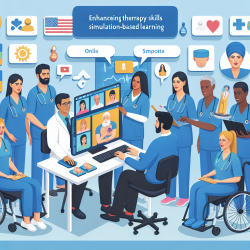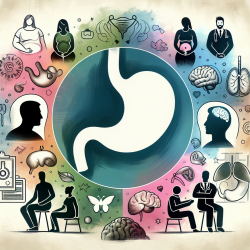As health and allied health professionals, we continuously strive to provide the best care possible to all our clients. However, a significant gap remains in our understanding and competency when it comes to transgender-specific healthcare. A recent systematic review titled "Delivering transgender-specific knowledge and skills into health and allied health studies and training: a systematic review" offers critical insights that can help bridge this gap. This blog aims to distill the key findings of the review and provide actionable steps for practitioners to enhance their skills and knowledge in transgender healthcare.
Key Findings from the Systematic Review
The review analyzed 21 studies focused on training interventions for health and allied health students. Here are some of the most significant findings:
- Knowledge Improvement: Almost all interventions (19 out of 21) indicated improvements in knowledge, attitudes, confidence, and practical skills concerning care for transgender clients.
- Educational Gaps: Major limitations included the lack of long-term data, validated assessment tools, control groups, and comparative studies.
- Diverse Approaches: Teaching methods varied widely, including didactic lectures, standardized patient simulations, and multimodal approaches combining lectures, panel discussions, and group work.
- Community Involvement: Programs that involved transgender individuals as lecturers or standardized patients were particularly effective in improving student outcomes.
Implementing Findings into Practice
To enhance your skills and knowledge in transgender healthcare, consider the following steps based on the review's findings:
- Incorporate Diverse Teaching Methods: Utilize a combination of lectures, standardized patient simulations, and panel discussions to provide a well-rounded educational experience.
- Engage the Transgender Community: Involve transgender individuals in your training programs to provide authentic perspectives and experiences.
- Focus on Long-Term Education: Implement longitudinal curricula that include continuous training and education on transgender healthcare.
- Use Validated Tools: Employ validated assessment tools to measure the effectiveness of your training interventions.
- Promote Cultural Competence: Emphasize the importance of culturally sensitive communication and gender-affirmative care in your practice.
Encouraging Further Research
While the review provides valuable insights, it also highlights the need for further research. Specifically, more studies are needed to:
- Assess the long-term impact of training interventions on both practitioners and transgender clients.
- Develop and validate standardized assessment tools for measuring training effectiveness.
- Explore the direct impact of training interventions on clinical outcomes for transgender clients.
By committing to continuous education and research, we can ensure that our practices evolve to meet the needs of all clients, including transgender individuals.
To read the original research paper, please follow this link: Delivering transgender-specific knowledge and skills into health and allied health studies and training: a systematic review.










